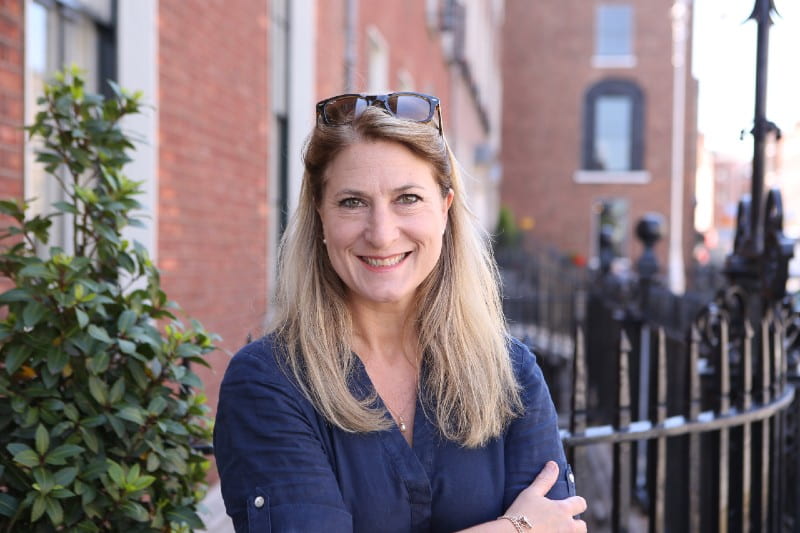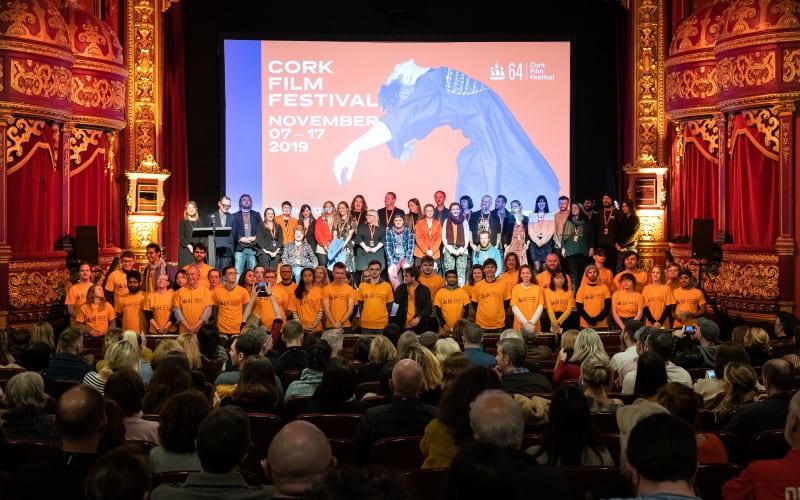Since graduating from Bristol in 1989 with a BA in English and Drama, Fiona Clark has had an incredible career. She is a highly experienced strategic leader, successful arts manager, and senior fundraiser whose career spans the arts and voluntary sectors in the UK and internationally. Currently the Festival Director and CEO of the Cork International Film Festival, just some of Fiona’s previous roles have included: Head of Development at the Irish Film Institute, CEO of Get Connected and CEO of Earthrace Ltd.
What initially made you want to attend the University of Bristol?
The course, definitely. At that time very few universities were offering English and Drama as a combined degree, which is what I wanted to do. Bristol was also a very established university with a good reputation. I may also have been influenced by my friend’s mum who worked at the BBC as she had studied there, and it didn’t hurt either that on my open day we were supervised by a very enthusiastic David Nicholls and Matthew Warchus! Although, I almost didn’t make it, as at the time of my offer I was merrily travelling around South America (where I was born) having a great adventure.
What attracted you to study in the city of Bristol?
Having the Bristol Old Vic theatre here was a very big attraction – it’s one of the oldest theatres in the country. On a trip to Bristol I walked into the Old Vic and thought “I want to be on that stage, I want to be here.”
What is your fondest memory from your time at Bristol?
I remember doing lots and lots of plays, so many, especially through the students’ union. And opposite the drama department was a little café with amazing toasted teacakes – most of our ideas and production meetings were developed over those teacakes. I also made incredible lifelong friends at Bristol.
Where was your favourite place to spend time in Bristol and why?
At the students’ union bars – the Epi and Mandela – producing plays, drinking cheap lager, putting the world to rights!
What kind of student were you?
I’m afraid I was a real ‘last minute merchant’, pulling all nighters – I actually enjoyed the 24-hour essay we had to do for our English finals! I was passionate about my course, but I wasn’t conscientious. I did a lot of acting, writing and producing, it was wonderful. I had the confidence of youth, gloriously built on ignorance. It was fabulous.
You know, university is for education in the broadest sense. It’s about learning to be sociable, learning independence, absorbing and discovering, mixing and diversifying. It’s not just about essays and exams.
How did studying at the University impact you as a person?
Going to university reinforced my sense of independence. It gives you a framework to think about what you want to do with your life, to think about your decisions. It’s so much less about a ‘job for life’. My own father quit an executive position at Shell aged 50, to retrain as a cabinet maker and I was influenced by that. University showed me how important it is to do something you love, to pursue your passion and not just be lured by money.
How did studying at the University help you in your career?
I set up my own theatre company and university gave me the confidence to do it. I walked into a bank and asked for a loan to take a production of James and the Giant Peach to the Edinburgh Fringe. I also managed to get my first job out of university at the Old Vic, and that is where my career really started. There are lessons that I learnt there in a junior role that remain important foundations of how I conduct myself and my work to this day. There are such good connections between the University and the Old Vic, it’s important.
What is the best career advice that you have ever been given?
Never be afraid to ask for help. It’s usually free and people are usually happy to give it. But always remember to pay it forward.
What has been the proudest moment of your career to date?
It’s difficult to pin it down to just one. I do remember the time I was co-producing my first West End show in London, which was The Glee Club at the Duchess Theatre, and looking up and seeing it in lights above the theatre and being so happy and proud. But I’m equally proud of a completely different moment in my life in 2008 when I was CEO of Earthrace. We set a new world record for a powerboat to circumnavigate the globe, running 100% renewable Biodiesel fuel, and with a net zero carbon footprint. We broke the world record in just 60 days 23 hours and 49 minutes, knocking almost 14 days off the previous record, held for ten years. It was an epic adventure, but it had an important purpose too: Earthrace is now a global environmental conservation organisation that undertakes missions around the world that save animals and habitats.
Given COVID-19, how will the 2020 Cork International Film Festival differ from previous years? What have been the challenges this year and have there been any unexpected benefits?
Without a doubt it’s been really hard to completely reimagine this festival. We have grown it so much with audiences up 36% in the last two years. It’s our 65th Anniversary this year and obviously we wanted to celebrate that in a big way. To change tack, I started by taking a fresh look at our strategy, who we are, who we’re for, and then looked at how we could best communicate that in a reconfigured way. You must just keep moving forward. Of course, we were tracking what was happening with live events internationally, exploring and researching, as well as attending online film festivals.
What we wanted was to keep that feeling of a curated experience, collectively shared. Our approach now is to present a ‘blended’ event of 5 days of socially distanced physical film screenings and 8 days of online screenings. And of course, we have a contingency plan to switch to fully online if necessary, but we’re hopeful that won’t be the case.
I should add that one benefit from the changes that COVID-19 has brought, is that we have moved our schools outreach programme online. So now it’s scalable to the whole of Ireland and not just Cork, which is fantastic.
What makes a film outstanding for you?
The storytelling. Rich characters and an authentically told narrative hook me. I couldn’t name a favourite, but right now my highly rated films include Parasite, Cinema Paradiso, and the forthcoming Nomadland. I adored Portrait of a Lady on Fire last year, it was so refreshing to have so many strong female voices both in front of and behind the camera. All the art forms involved in it were exquisite – the cinematography, the acting, the music. Outstanding films? Everything in the 65th Cork International Film Festival 4-15 November 2020, of course!


